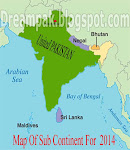
The concept of an independent Muslim nation emerged gradually from the aftermath of the Indian Rebellion of 1857. In 1885, the Indian National Congress was founded as a forum, which later became a party, to promote a nationalist cause.[39] Although the Congress attempted to include the Muslim community in the independence struggle and some Muslims were very active in the Congress, the majority of Muslim leaders did not trust the party, viewing it as a "Hindu-dominated" organization.Some Muslims felt that an independent united India would inevitably be "ruled by Hindus",[citation needed] and that there was a need to address the issue of the Muslim identity within India.[citation needed] Thus in 1877, Syed Ameer Ali formed the Central National Muhammadan Association to work towards the political advancement of the Muslims, but the organization declined towards the end of the nineteenth century. A turning point came in 1900 when the British administration in the United Provinces of Agra and Oudh (now Uttar Pradesh), acceded to Hindu demands and made Hindi, written in the Devanagari script, the official language. The Muslims feared that the Hindu majority would seek to suppress Muslim culture and religion in an independent India. The All-India Muslim League was founded on December 30, 1906, on the sidelines of the annual All India Muhammadan Educational Conference in Shahbagh, Dhaka.[41] The meeting was attended by three thousand delegates and presided over by Nawab Viqar-ul-Mulk. It addressed the issue of legitimate safeguards for Muslims and finalised a programme. A resolution, moved by Nawab Salimullah and seconded by Hakim Ajmal Khan. Nawab Viqar-ul-Milk, declared:

The constitution and principles of the League were contained in the "Green Book", written by Maulana Mohammad Ali. Its goals at this stage did not include establishing an independent Muslim state, but rather concentrated on protecting Muslim liberties and rights, promoting understanding between the Muslim community and other Indians, educating the Muslim and Indian community at large on the actions of the government, and discouraging violence. However, several factors over the next thirty years, including sectarian violence, led to a re-evaluation of the League's aims.Among those Muslims in the Congress who did not initially join the League was Muhammed Ali Jinnah, a prominent Bombay lawyer and statesman. This was because the first article of the League's platform was "To promote among the Mussalmans (Muslims) of India, feelings of loyalty to the British Government". In 1907, a vocal group of Hindu hard-liners within the Indian National Congress movement separated from it and started to pursue a pro-Hindu movement openly. This group was spearheaded by the famous trio of Lal-Bal-Pal - Lala Lajpat Rai , Bal Gangadhar Tilak and Bipin Chandra Pal of Punjab, Bombay and Bengal provinces respectively. Their influence spread rapidly among other like minded Hindus - they called it Hindu nationalism - and it became a cause of serious concern for Muslims. However, Jinnah did not join the League until 1913, when it changed its platform to one of Indian independence as a reaction against the British decision - taken under the enormous pressure and vociferous protests of the Hindu majority - to reverse the 1905 Partition of Bengal, which the League regarded as a betrayal of the Bengali Muslims.Even at this stage, Jinnah believed in Muslim-Hindu co-operation to achieve an independent, united India, although he argued that Muslims should be guaranteed one-third of the seats in any Indian Parliament.

The League gradually became the leading representative body of Indian Muslims. Jinnah became its president in 1916, and negotiated the Lucknow Pact with the Congress leader, Bal Gangadhar Tilak, by which Congress conceded the principle of separate electorates and weighted representation for the Muslim community.However, Jinnah broke with the Congress in 1920 when the Congress leader, Mohandas Gandhi, launched a law violating Non-Cooperation Movement against the British, which a temperamentally law abiding barrister Jinnah disapproved of. Jinnah also became convinced that the Congress would renounce its support for separate electorates for Muslims, which indeed it did in 1928. In 1927, the British proposed a constitution for India as recommended by the Simon Commission, but they failed to reconcile all parties. The British then turned the matter over to the League and the Congress, and in 1928 an All-Parties Congress was convened in Delhi. The attempt failed, but two more conferences were held, and at the Bombay conference in May, it was agreed that a small committee should work on the constitution. The prominent Congress leader Motilal Nehru headed the committee, which included two Muslims, Syed Ali Imam and Shoaib Quereshi; Motilal's son, Pt Jawaharlal Nehru, was its secretary. The League, however, rejected the committee's report, the so called Nehru Report, arguing that its proposals gave too little representation (one quarter) to Muslims – the League had demanded at least one-third representation in the legislature. Jinnah announced a "parting of the ways" after reading the report, and relations between the Congress and the League began to sour.


0 comments:
Post a Comment